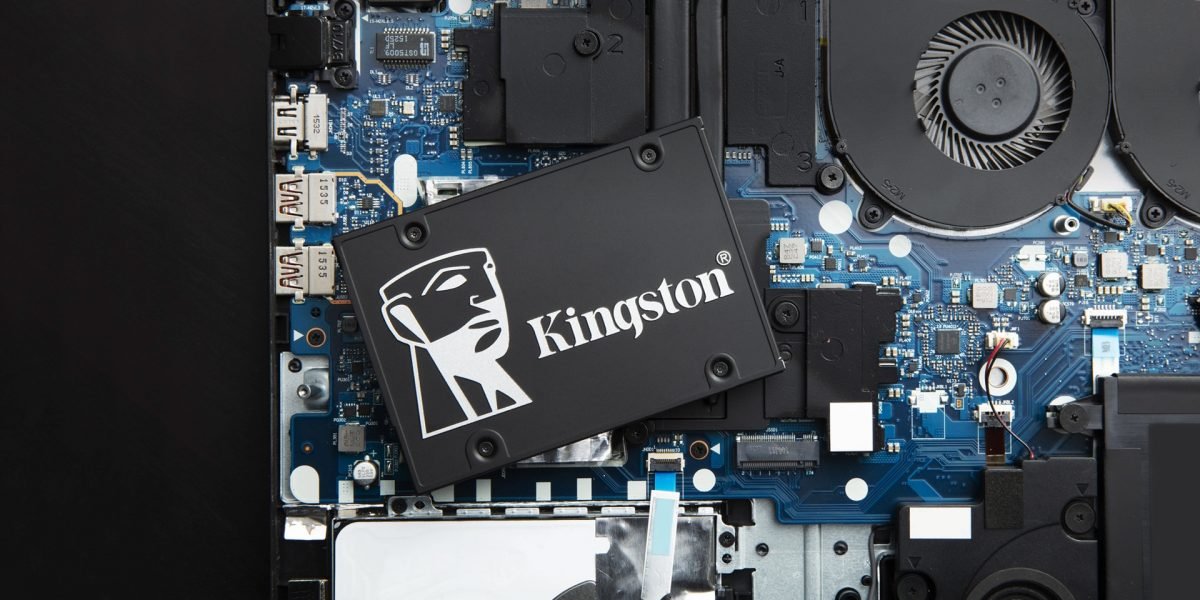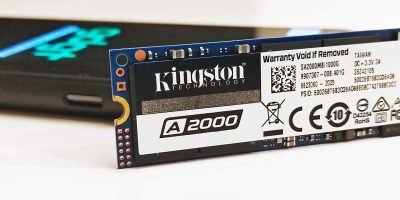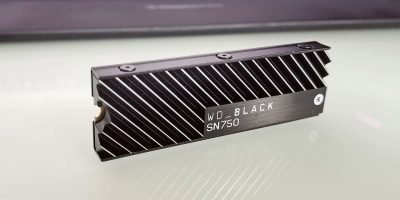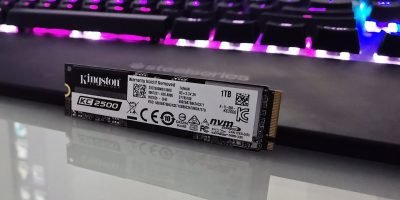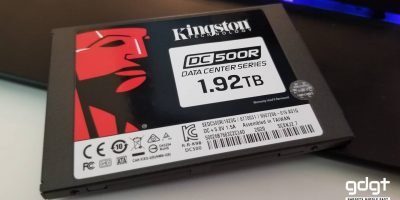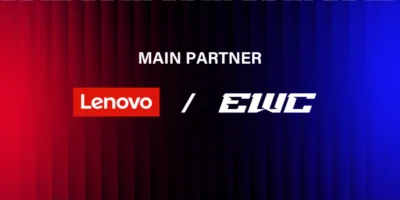With the introduction of PCIe NVMe SSDs, 2.5-inch SATA SSD’s have become cheaper over time and offer much better performance compared to traditional HDDs.
The Kingston KC600 is a SATA 3 SSD with an excellent price to performance ratio and comes with hardware-based security and encryption using 256-bit AES-XTS, Opal 2.0, and eDrive, ensuring the integrity and privacy of data.
The KC600 offers better boot, load and data transfer speeds (close to the maximum offered by the SATA 3 interface) and is almost as cheap as an HDD in 2020. In terms of durability the KC600 offers 600TBW on the 1TB unit and 1,000,000-hour MTBF.
Kingston KC600 uses the 3D TLC NAND technology and offers a maximum read and write speed of 550 / 520MB / s using SATA 3.0 interface. Storage capacity starts from 256GB up to 2TB and is backed by a 5-year warranty.
| Model | KC600 |
| Capacity | 1000 GB (953 GB usable) |
| Form Factor | 2.5″ |
| Dimensions | 100.1mm x 69.85mm x 7mm |
| Operating Temperature | 0°C ~ 70°C |
| Encryption | XTS-AES 256-bit Encryption |
| Controller | SM2259 |
| Endurance | 600 TBW 1 millions hours MTBF |
| Interface | SATA Rev. 3.0 (6Gb/s) – with backwards capability to SATA Rev 2.0 (3Gb/s) |
| Warranty | 5 years |
Unboxing
The packaging comes in a simple cardboard box with a see-through plastic blister.
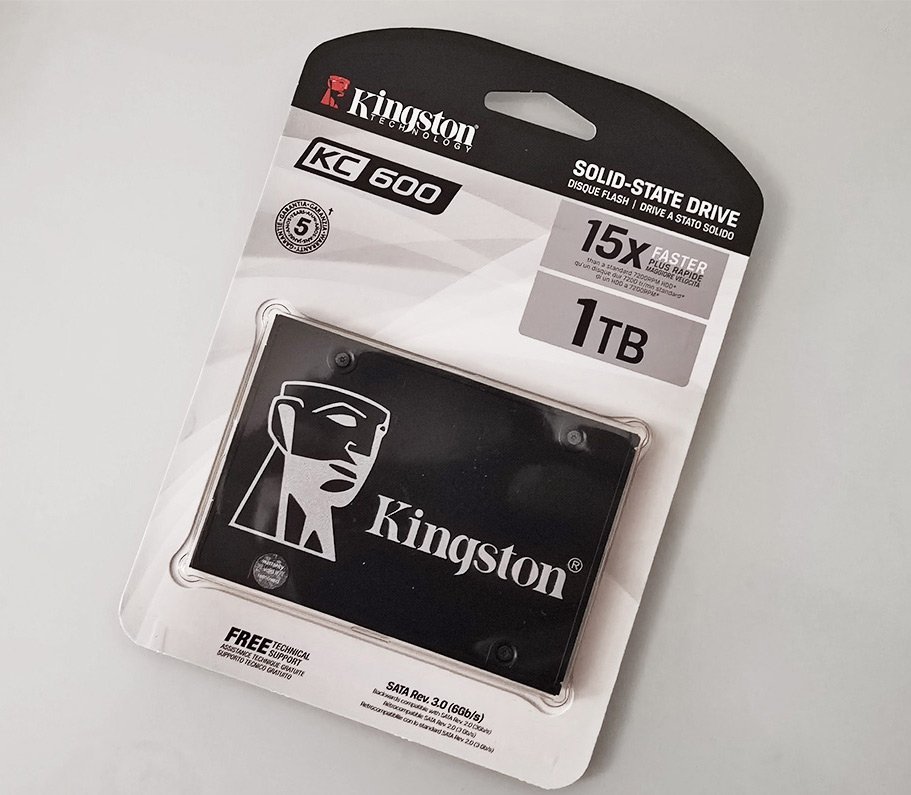
Inside, we have the just the SSD, no manuals or mounting screws. The KC600 is a 2.5-inch standard format SATA 3 SSD with 7 mm thickness and is also compatible with laptops that support SATA SSDs.
The exterior casing is matte black is made of good quality aluminium, measures 100.1mm x 69.9mm x 7mm and weighs only 40gm.
Performance
Our review unit is the 1TB version. For the performance tests we have used the following hardware. On paper, performance should be 550 MB/s in sequential reading and 520 MB/s in writing, along with 100K IOPS and 90K IOPS.
- AMD Ryzen 3600
- Bequiet! Dark Rock Pro 4
- ASUS ROG B550-F Wi-Fi
- MSI 5700 XT Gaming X
- Corsair Vengeance LPX 16GB (2x8GB)
- Cougar GX-F 650W PSU
| CrystalDiskmark Read | 565 MB/s |
| CrystalDiskmark Write | 520 MB/s |
| ATTODisk Read | 530 MB/s |
| ATTODisk Write | 480 MB/s |
| ATTODisk Read IOPS | 90K |
| ATTODisk Write IOPS | 80K |
In CrystalDiskMark, the KC600 comes out with 565 MB/s and 520 MB/s in sequential reading and writing
In ATTO Disk we see rates above 530 MB/s in reading and 480 MB/s in writing. The maximum performance in IOPS (Input/Output Operations Per Second) has been 90K for reading and 75K for writing.
File transfers with the Kingston KC600 remains stable at around 485MB/s, which is excellent. The overall performance is nearly the same as specified by Kingston.
With regards to temperature, although the KC600 has a maximum operating temperature of 70C, it never exceeded 45C even at maximum performance during our tests.
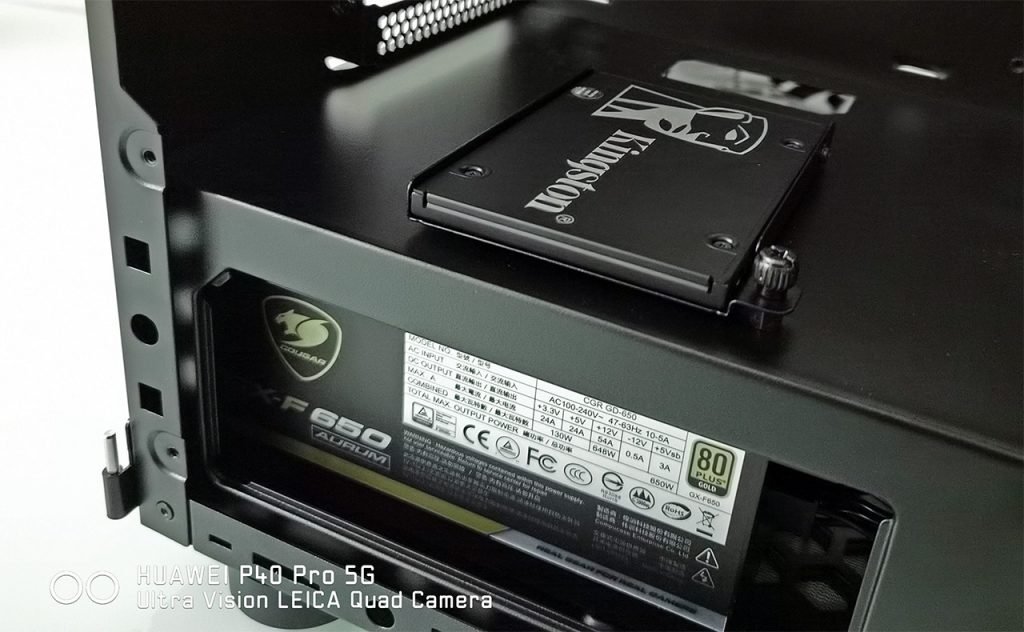
Software
The Kingston SSD Manager can be downloaded from Kingston’s website, which can help with monitoring temperature, drive health, status, and disk usage and also update firmware as and when they are released.
Conclusion
While PCIe NVMe SSDs offer much better performance, SATA SSD’s have become a faster and better alternative to traditional HDDs for consumers, offering excellent price to performance ratio.
With read/write speeds of 565 MB/s and 520 MB/s respectively, a mid-end SATA SSD like the Kingston KC600 is a great option for people who are looking to upgrade their HDD storage without breaking the bank.
Time to ditch the old HDD?

